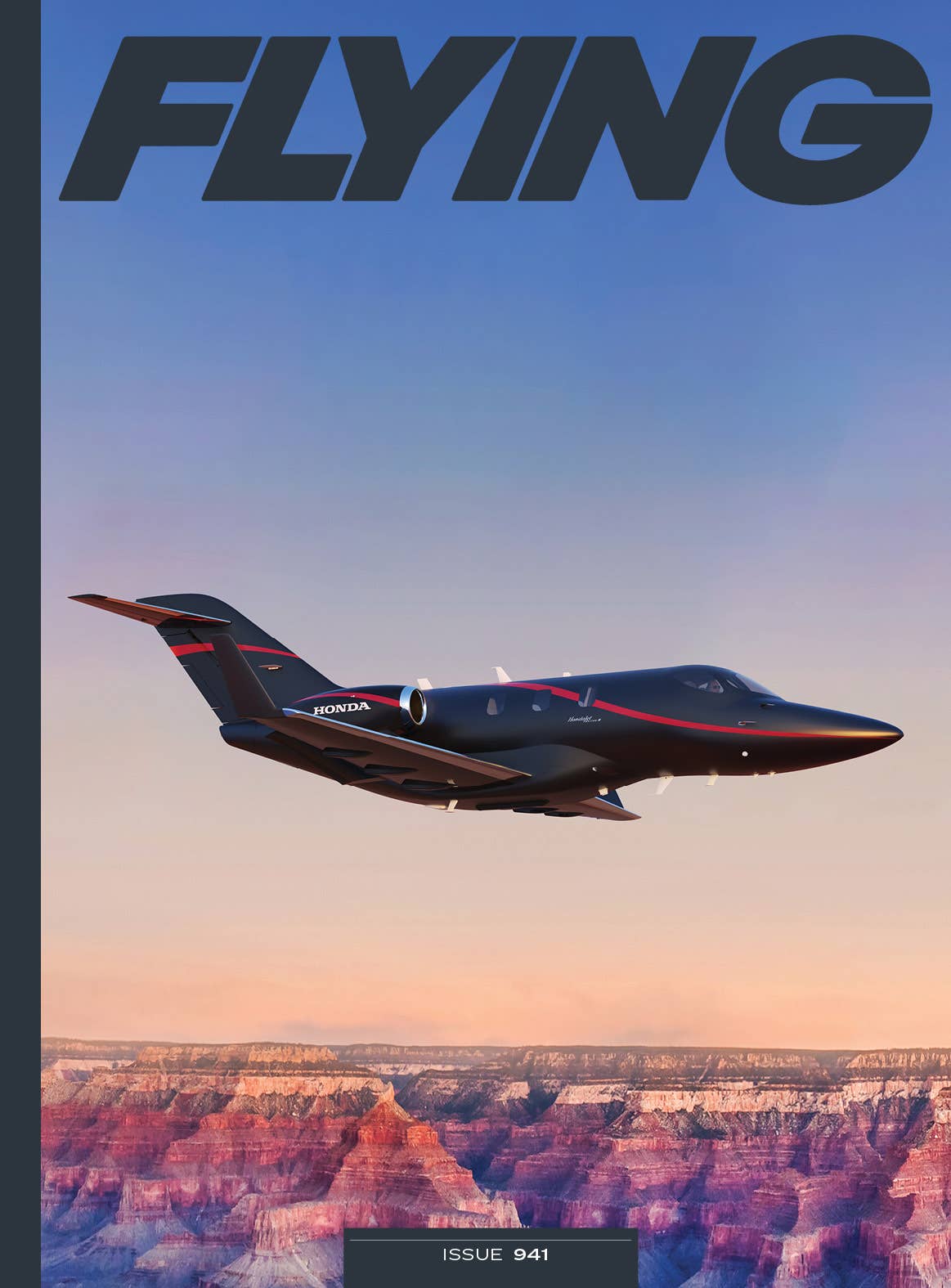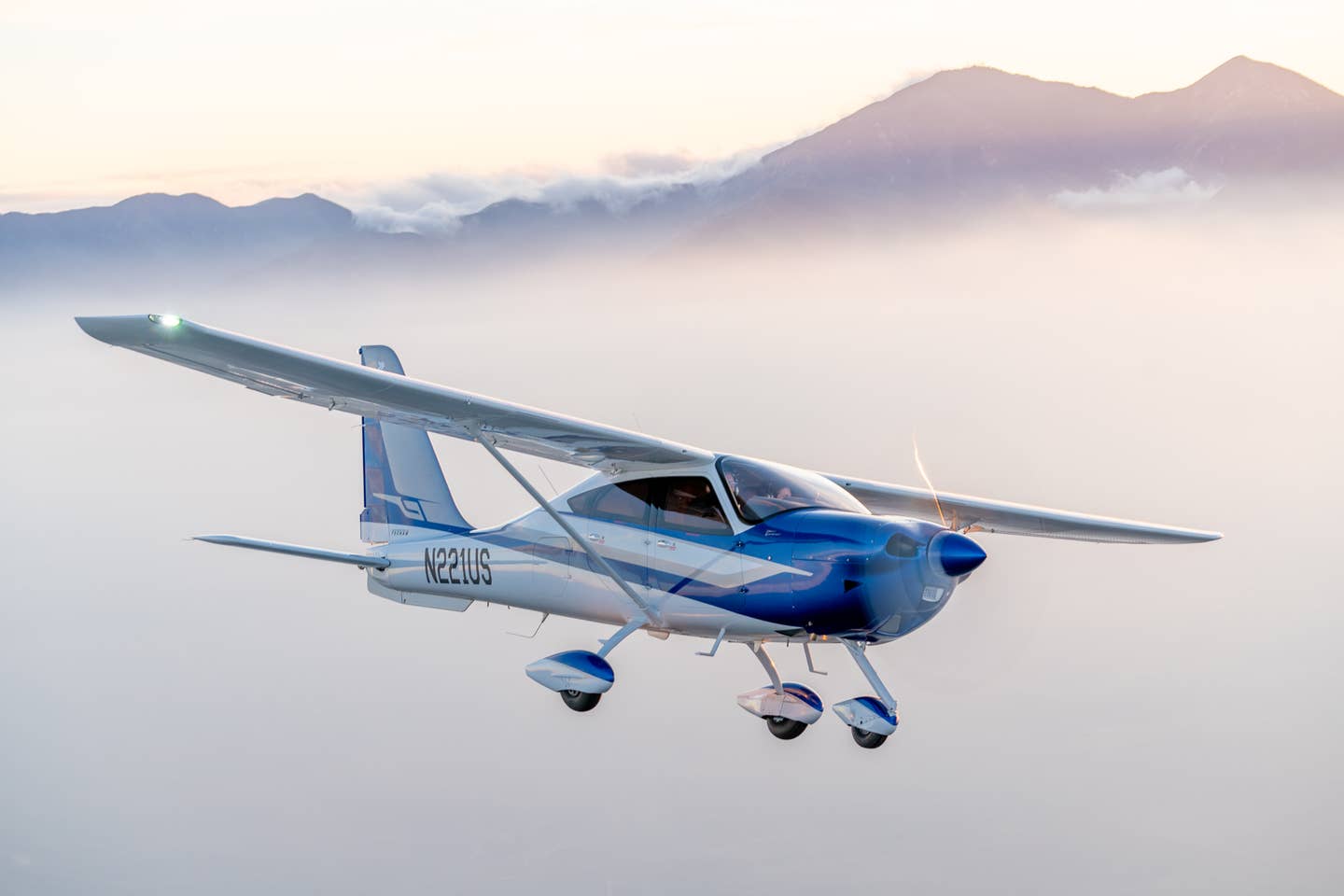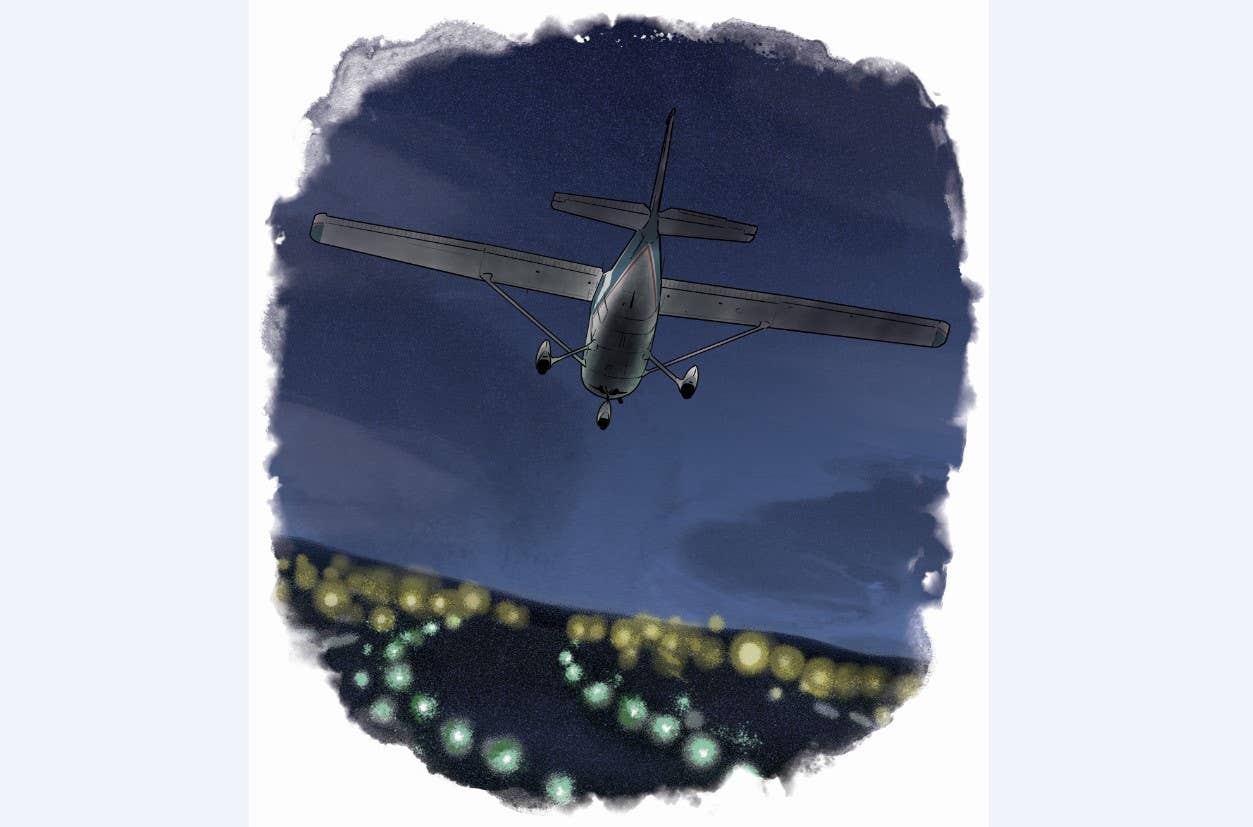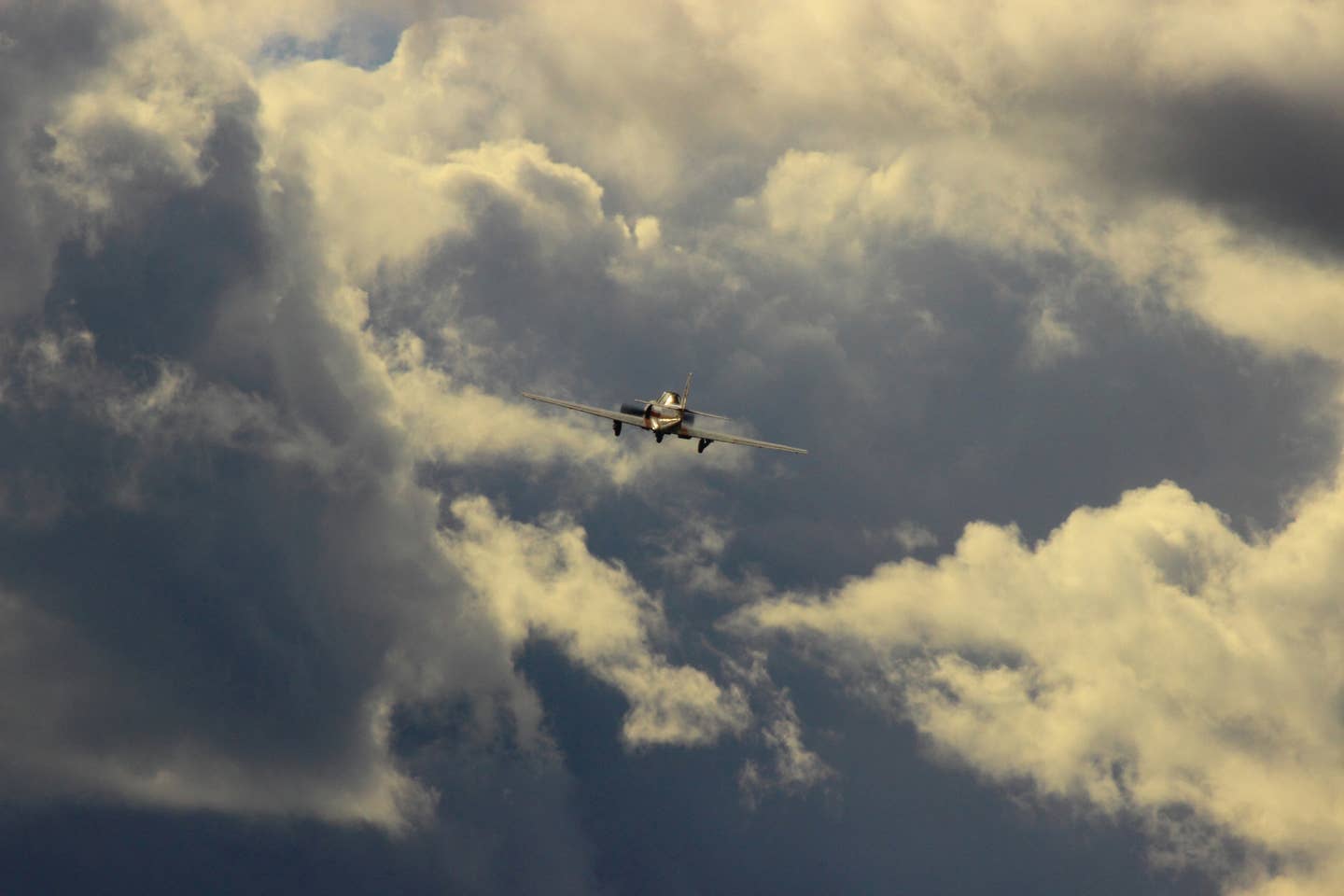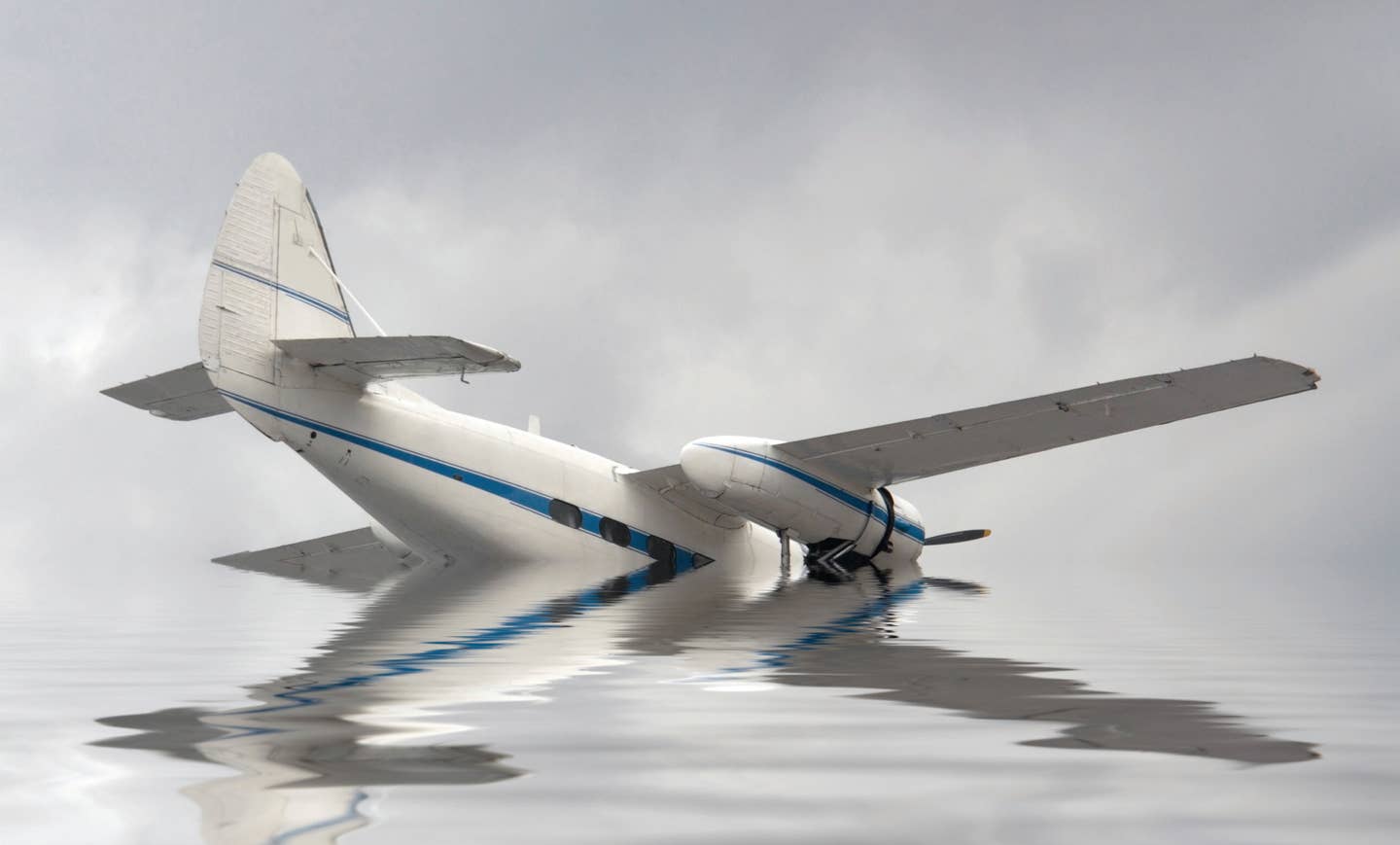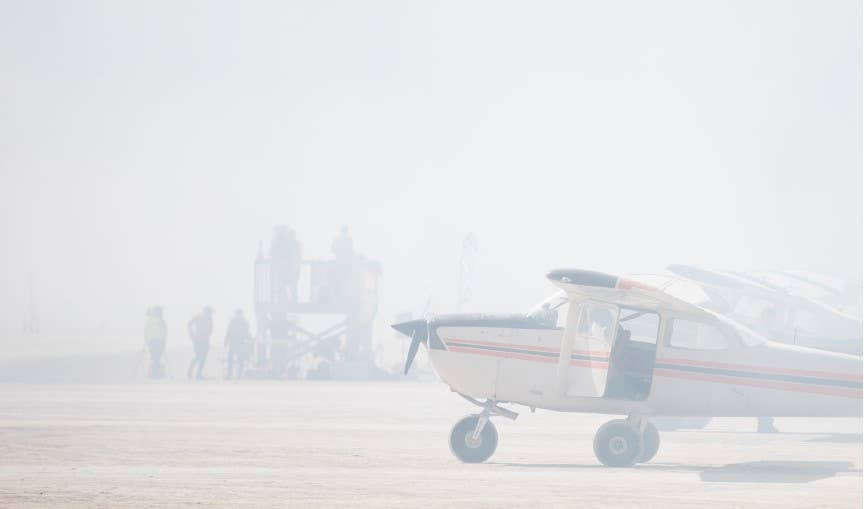Life’s a Beach…When You Fly Into One
A trip to Copalis State (S16), the Lower 48’s only public beach airport, becomes a relaxing Labor Day outing.
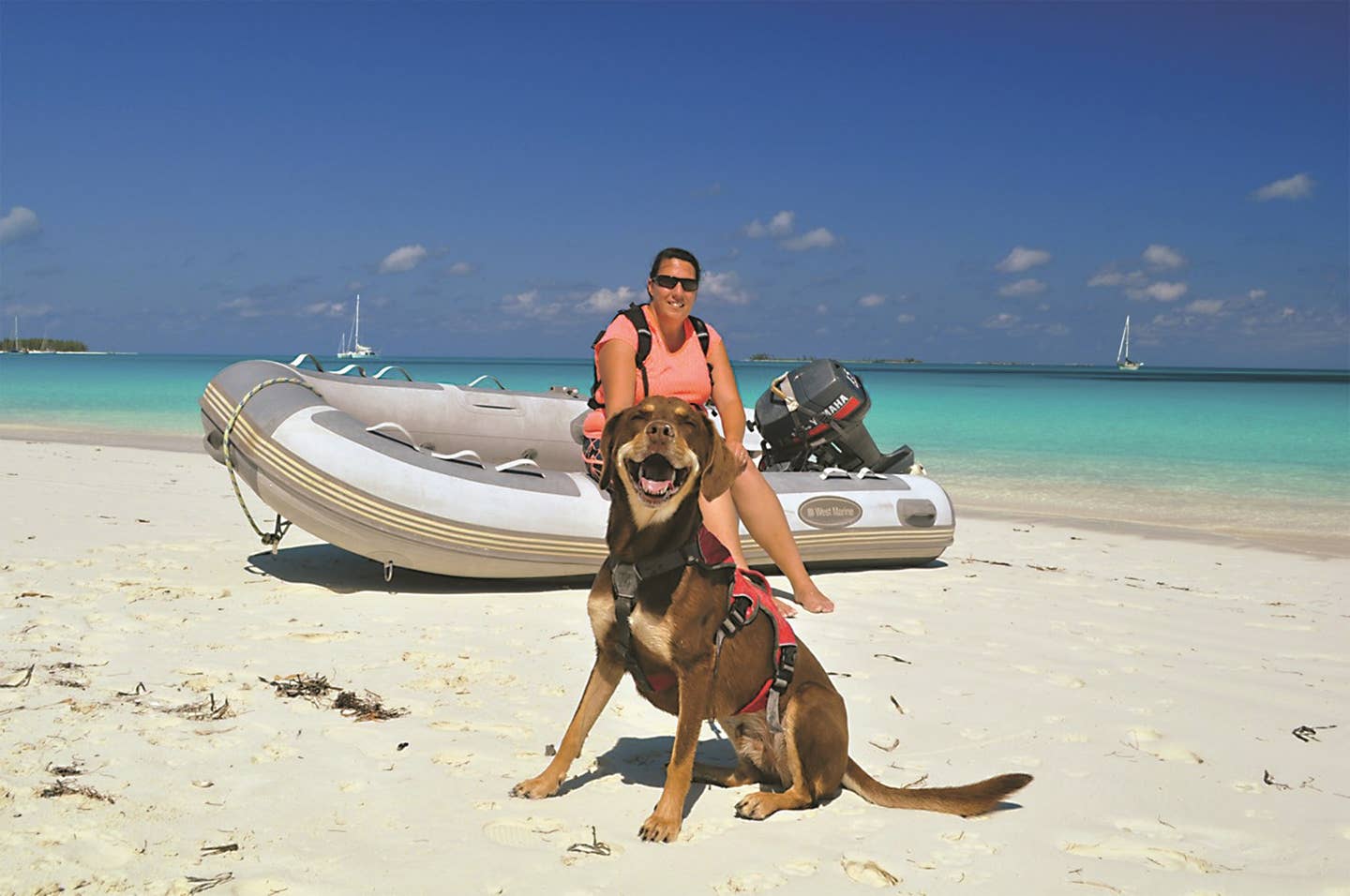
Piper gets a ride in on a Stinson flow by his ‘dad.’ [Credit: Sam Weigel]
The tang of salt on an insistent, scouring sea breeze, the forlorn cry of wheeling gulls, the glint of September sun on a long line of combers unbroken to the distant horizon—all these are utterly familiar to me in an almost unsettling way, my adopted sensory home base, stage directions for deep-seated sea dreams that wash away on waking. This tableau could well be a stand-in for heaven, or purgatory, or hell in a Swedish arthouse flick. But no, here is my wife Dawn with her dark hair blowing wildly around her, there is my Lab-mix pooch Piper bounding joyfully across the moist sand, and there is our blue-and-neon-green Stinson standing proudly (and somewhat incongruously) just below the high water line with a small collection of other GA aircraft. This is my first time at Copalis State (S16), the Lower 48’s only public beach airport, and we’re all enjoying our unique Labor Day outing—perhaps our rambunctious pup most of all.
Piper has led an exceptionally charmed, adventurous dog’s life by air and sea in his eight years with us. We acquired our first airplane, a 1953 Piper Pacer, while the canine Piper was but eight weeks old. A fortnight later, he had his first airplane ride in my brother Steve’s lap. He bore it well enough, but followed up by puking all over my truck’s back seat. His stomach soon became acclimated to flight, and various aerial adventures followed over Piper’s first two years of life.
If you're not already a subscriber, what are you waiting for? Subscribe today to get the issue as soon as it is released in either Print or Digital formats.
Subscribe NowBut then we sold the airplane, our house, and everything Piper had hitherto known, and decamped to a 42-foot sailboat named Windbird, on which we subsequently lived for nearly five years and sailed over 12,000 nm throughout the Bahamas, Caribbean, and U.S. East Coast. To this new, rather jarringly different lifestyle, Piper adapted admirably well. He quickly learned to negotiate our steep companionway ladder, found his sea legs on oceanic passages, and soon discovered a clear delight in dinghy rides and beach outings. His gregarious personality won him friends among island dogs, locals, and sailors from Nantucket to Grenada. Piper’s seaborne life inspired Dawn to start a nautical-themed dog treat company (“Ruff Seas Treats”) soon after our return to land.
Alas, Piper’s nautical exploits have come to an end, but lately, his aerial adventures have resumed where they left off in 2016. The apparent dog-friendliness of our 1946 Stinson 108 was one of the factors that attracted us to it. The cabin is agreeably utilitarian, not unlike the interior of our Nissan Xterra SUV. The rear seat makes a perfect perch for Piper to watch the landscape pass by, and it’s easily removable for expeditions requiring a dog bed and camping equipment.
Piper’s first GA flight in six years was an admittedly shaky affair. We quickly figured out it was the noise that was bothering him, as the Stinson is even louder than our Pacer was. We ordered Piper a pair of Mutt Muffs (safeandsoundpets.com), and after a bit of getting used to them, they seemed to greatly alleviate his aerial jitters. After a few successful shorter flights, it was time to plan our first extended trip in the Stinson over Labor Day weekend.
Our initial itinerary was a camping tour of the Cascades’ mountain landing strips, from Lake Chelan (Stehekin State, 6S9) to Rimrock Lake (Tieton State, 4S6) to Ranger Creek (21W). This was prevented by a renewed outbreak of forest fires, with accompanying smoke and TFRs. In fact, the smoke was thick enough to keep us strictly local for the first few days of Labor Day weekend.
But then, on Labor Day itself, the skies cleared between us and the coast, making a day trip to Copalis State an enticing option. I’d heard Copalis was a neat place to fly, but before buying the Stinson a month prior, I couldn’t take the Cherokee I was renting and didn’t want to abuse my neighbor Ken’s generosity in lending me his SuperCub. As a sailor, I am fully aware of the destructiveness of saltwater. If I’m going to land on an ocean beach, it’s going to be in my own airplane (with a good hose-down to follow). I now had a few hours in the Stinson, and was feeling pretty good about my landings. I reasoned that I could go take a look and drag the beach and only land if I was comfortable. The last question was one of tides, for Copalis is only usable at half-tide or lower, and best if still falling. The ideal three-hour period started around noon on Labor Day. It was settled.
Before we went, I watched YouTube videos of Copalis landings. The “runway” changes and is very loosely marked, but the approved landing area is at least easy to find thanks to a nearby inlet and a permanent windsock. Approaching from the northeast, we spotted it easily, even before seeing the airplanes on the ground. Next, I made a low pass. The retreating tide had left a distinct strip of dark, moist-but-not-wet sand. I decided to make a wheel landing on my next approach, reasoning that if the sand was softer than expected, I would have the energy to either go around or just add power and “drag” the strip with my mains before coming around for another try. I needn’t have worried; the sand was more akin to concrete than our grass airstrip, and the landing was a complete non-event.
As soon as we shut down and extracted Piper from the back seat, he tore off down the beach at a gallop, chasing seabirds with tongue flying and a grin on his face. The beach is still very much his happy place. One of the other pilots had brought along two large German Shepherds in his Cessna 210, and Piper soon made new friends. The 210 pilot left the dogs with his girlfriend and took the airplane for a few circuits, practicing soft-field takeoffs and landings. His technique was excellent, though I winced every time he retracted the landing gear—I think I would have left it down until I had a chance to hose it off. Soon a Carbon Cub approached from the north, inquiring on the radio about runway conditions. I got a good chuckle out of a Centurion driver convincing a CubCrafters guy that his airplane could handle the beach.
Our little gaggle of airplanes attracted quite a bit of attention from holiday beachgoers. Copalis State has been an FAA-approved airport (summer months only) for many years, but quite a few onlookers didn’t know about it and, intrigued, came over to look at the airplanes and talk to the pilots. Our Stinson’s blue-and-neon-green paint scheme (chosen by the previous owner) garnered particularly appreciative comments from the Seahawks faithful. Personally, I think our colors will look great for search and rescue responders if they ever have cause to come looking for me.
A few hours after our arrival, the sun was starting to dip and the distant surf had reversed its retreat. Piper was resting in the cool sand after a couple hours of running his little heart out. It was time to go. We all loaded up, taxied to the south end of the beach, made sure beachgoers were clear, and took off. I couldn’t resist another low approach to show off our pretty Stinson, then climbed toward the Olympic Mountains and our home strip, 45 minutes away. Piper slept in the back seat, no doubt dreaming about chasing seagulls. Dawn squeezed my arm and rested her head on my shoulder as the slanting sun turned the smoky skies golden. Our outing to the beach was a small trip early in our ownership of the Stinson. But it was a nice preview of the adventures this classic taildragger will open up to us—and our pooch—as we explore our adopted home state and surrounding area in the coming years.
This article was originally published in the May 2023 Issue 937 of FLYING.

Subscribe to Our Newsletter
Get the latest FLYING stories delivered directly to your inbox

